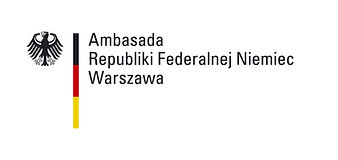
Globally, approximately 1.3 billion tons of food are wasted each year. Food loss is not only an ethical and economic issue—it is also a climate crisis multiplier. If food waste were a country, it would be the third-largest emitter of greenhouse gases after the U.S. and China. Reducing food loss and waste is among the most cost-effective climate actions we can take.
In Germany (with a population of 83,5 Mio) food waste amounts to nearly 11 million tons per year and in Poland (with a population of 36,5 Mio) to nearly 5 million tons annually. Food waste occurs at every stage of the supply chain—from production, through distribution, to consumption. A significant share of this waste occurs in private households, where consumer habits, lack of awareness and also knowledge, and systemic inefficiencies contribute to avoidable waste.
On October 17, 2025, the amendment to the Waste Framework Directive came into force. The new regulations introduce binding EU-wide food waste reduction targets to bet met by 2030.The targets are a 10 % reduction in food processing and manufacturing, and a 30% per capita jointly reduction in retail, restaurants, food services and households. These changes can have a significant impact on companies in the food industries, which must prepare for new reporting, compliance, and cooperation obligations with industry organizations. As countries committed to sustainability, Germany and Poland recognize the importance of reducing food waste and climate-friendly behavior. However, there is still a lot to be done – efforts are required from all actors along the food chain.
The event will bring together thought leaders, practitioners, and the public to build awareness and discuss successful solutions to reduce food waste and fight climate change.

Objectives:
-
Raise awareness about food waste as a climate and sustainability issue
-
Share information about strategies, best practices and tools as well as behavioral insights to reduce food waste
-
Showcase successful campaigns in Germany and Poland
-
Promote sustainable consumption in line with the UN SDGs (especially SDG 12 & 13)
Target Audience:
-
Policymakers, business associations and city officials
-
Environmental NGOs and activists
-
University teachers, university students, and curriculum developers
-
Food sector representatives (apps, retailers, food-industry, food banks)
-
General public and diplomatic community


Agenda
09:30 - 10:00 | Arrival & registration. Welcome coffee
10:00 - 10:05 | Opening remarks
-
Jens Beiküfner, Head of the Economic Department, Embassy of Germany in Poland
10:05 - 11:25 | Panel discussion: “Strategies on Reducing Food Waste in Germany and Poland”. Challenges and opportunities in the context of reducing food waste along the entire value chain, particularly in light of the new requirements of the Waste Framework Directive?
Moderator: Hubert Bukowski, INNOWO
Panel participants:
-
Małgorzata Kajak, Head of the Municipal Waste Management Department, Ministry of Climate and Environment
-
Julia Poczekaj, German Federal Ministry of Agriculture, Food and Regional Identity (BMLEH)
-
Marta Czarnak-Kłos, Head of the Market Chain Division, Agricultural Markets and Energy Transformation of Rural Areas Department, Polish Ministry of Agriculture and Rural Development
-
Marta Tomaszewska-Pielacha, Polish Federation of Food Producers Employers' Association
-
Lukasz Beier, Banki Żywności & member of the board of the European Food Banks Federation (FEBA)
11:25 - 11:40 | Q&A with the audience
11:40 - 12:00 | Networking coffee
12:00 - 13:30 | Panel discussion: “From Awareness to Action – Best practices in reducing food waste, with a particular focus on reducing waste in private households” - How can different stakeholders, especially private households, be motivated to take action? Presentation of platforms, action plans, voluntary agreements, campaigns, apps and other measures
Moderator: Marcin Milczarski, VIVERNO
Panel participants:
-
Prof. Dr. Nina Langen, Project Team DiFo pHH 2.0, Technical University of Berlin (online)
-
Andrea Lenkert-Hörrmann, Slow Food
-
Natalia Boitot, Vice Chair Working Group Food EUROCITIES, City of Warsaw
-
Mateusz Kowalczyk, CEO, Foodsi
-
Katarzyna Zamorowska, Regional Manager for Environmental Protection, Safety and Sustainability, ReFood
13:30 - 13:40 | Q&A with the audience
13:40 - 13:50 | Closing remarks
13:50 - 15:00 | Lunch and networking
ORGANISERS



